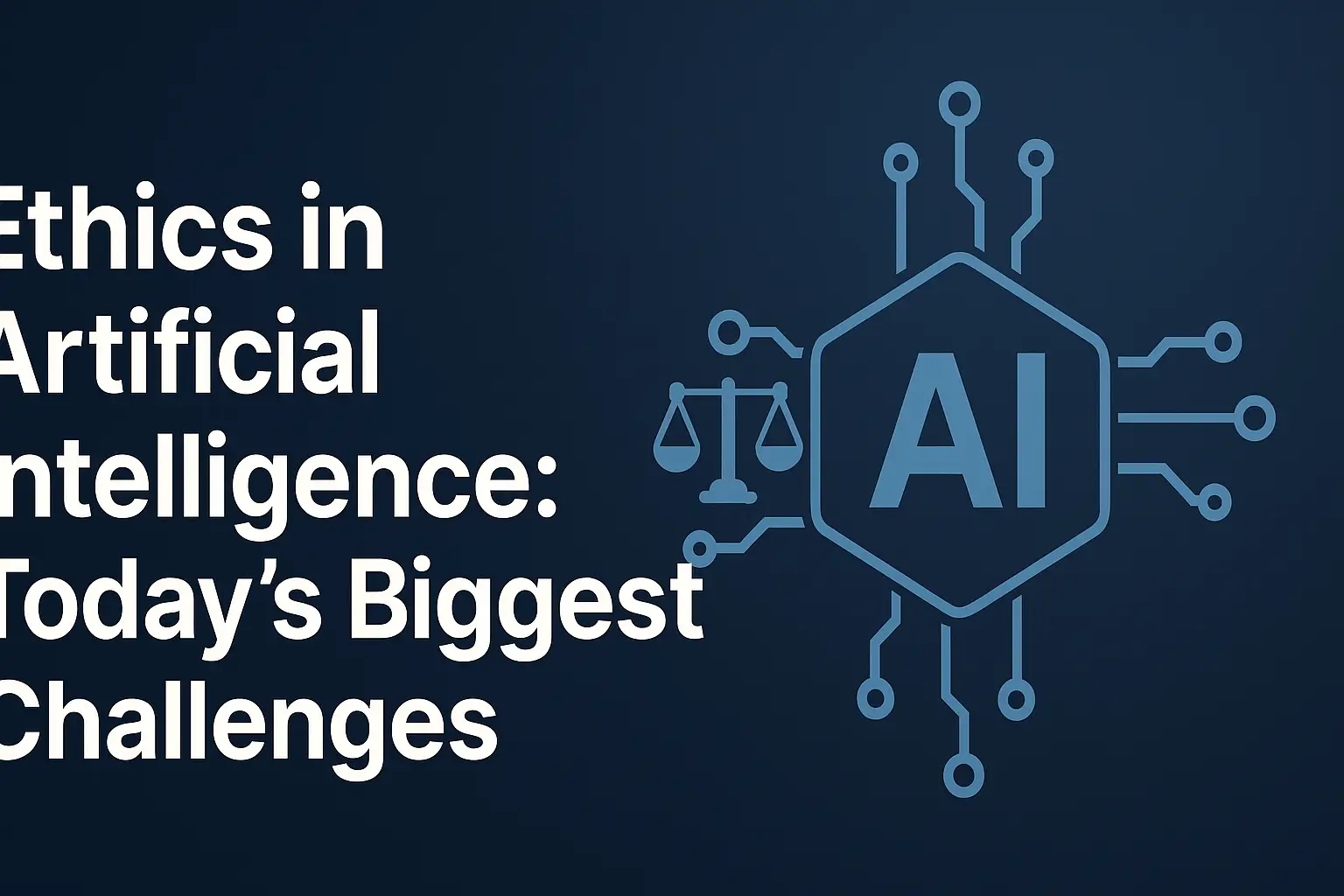As Artificial Intelligence (AI) becomes more advanced and integrated into everyday life, ethical concerns are emerging at the forefront of technological development. AI has the potential to enhance human life in countless ways—but it also introduces serious risks and questions about fairness, responsibility, and control.
This article dives into the biggest ethical challenges facing AI today and what can be done to address them.
Why AI Ethics Matters
AI systems are no longer confined to academic labs—they’re used in hiring decisions, criminal justice, healthcare, education, and even warfare. Their decisions can influence people’s lives in profound and sometimes irreversible ways.
Without ethical oversight, AI can:
- Amplify existing social biases
- Infringe on privacy rights
- Operate with little to no transparency
- Cause unintended harm due to poor design
Ethics in AI ensures these technologies are aligned with human values, rights, and the common good.
Major Ethical Challenges in AI
1. Bias and Discrimination
AI systems learn from data—but if that data reflects historical biases, the AI may perpetuate or even worsen discrimination.
Examples:
- Hiring tools that favor male resumes due to biased training data
- Facial recognition systems that perform poorly on darker skin tones
- Credit scoring models that unfairly deny loans to marginalized groups
Key Question: How can we ensure that AI systems treat all individuals fairly?
2. Lack of Transparency (The “Black Box” Problem)
Many AI systems, especially those using deep learning, operate in ways that are difficult to understand—even for their developers. This lack of explainability creates trust issues.
Example: A loan applicant is denied credit by an AI system, but no clear reason is given.
Key Question: Should AI be required to explain its decisions?
3. Data Privacy and Consent
AI relies on large datasets, many of which include sensitive personal information. Misuse or overcollection of data raises major concerns about user privacy.
Examples:
- Voice assistants recording conversations
- Smart cameras tracking movement in public spaces
- Health apps collecting private medical information
Key Question: How can users maintain control over their own data?
4. Job Displacement and Economic Inequality
AI-driven automation threatens to displace millions of workers, particularly those in repetitive or low-skill jobs. While new jobs may be created, the transition won’t be smooth for everyone.
Industries at Risk:
- Manufacturing
- Transportation
- Customer service
- Retail
Key Question: How can societies support workers impacted by AI?
5. Accountability and Liability
When an AI system causes harm—such as a self-driving car crash—who is responsible? The developer? The manufacturer? The user?
Example: A misdiagnosis made by an AI medical tool leads to delayed treatment.
Key Question: How should laws and regulations assign accountability for AI decisions?
6. Autonomous Weapons
AI is being used to develop autonomous weapons that can identify and eliminate targets without human intervention. This raises fears about misuse, loss of human oversight, and global security risks.
Key Question: Should autonomous weapons be banned under international law?
7. Deepfakes and Misinformation
AI-generated media, such as deepfake videos and synthetic voices, can be used to manipulate public opinion, spread falsehoods, or impersonate individuals.
Example: Deepfake videos used in political propaganda or fraud.
Key Question: How do we regulate AI-generated content without restricting freedom of expression?
8. Unequal Access and Technological Divide
While powerful AI tools are transforming industries, access to these technologies remains uneven. This could widen gaps between rich and poor countries, companies, or communities.
Key Question: How can we ensure AI benefits are distributed fairly?
Toward Ethical AI: Solutions and Best Practices
Although the challenges are significant, there are ways to guide AI development in an ethical direction.
1. Ethical Design Principles
AI should be designed with:
- Fairness: Avoid bias and promote inclusion
- Transparency: Explain how decisions are made
- Accountability: Define responsibility for outcomes
- Privacy: Protect user data
- Safety: Prevent harm and misuse
2. Diverse and Inclusive Teams
Building ethical AI starts with the people who design it. Diverse development teams are more likely to identify and prevent bias and address a broader range of social issues.
3. Regulatory Frameworks
Governments and institutions must create laws and guidelines for AI use. Examples include:
- GDPR in the European Union, which governs data protection
- AI Act (proposed in the EU) to classify AI risks and enforce standards
- Algorithmic Accountability Act in the U.S. (proposed legislation)
4. Public Engagement and Transparency
Companies and governments should be open about how they use AI and allow public input into high-impact systems.
5. Ethical Review Boards
Just as medical research must go through ethical review, AI projects—especially those involving sensitive data or high-risk decisions—should be evaluated by ethics committees.
Final Thoughts: Creating a Human-Centered AI Future
Ethics in AI is not an afterthought—it’s a necessity. As AI continues to evolve, we must ask tough questions, challenge assumptions, and make choices that reflect our values.
The future of AI isn’t just about what machines can do—it’s about what they should do. By putting ethics at the center of AI development, we can build systems that are not only smart but also safe, fair, and aligned with the best of humanity.
